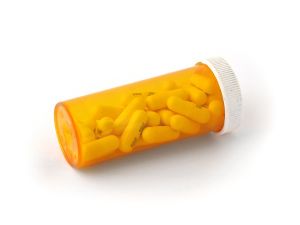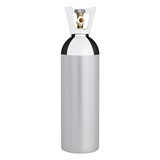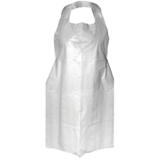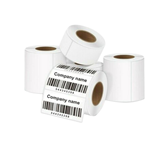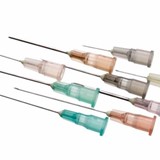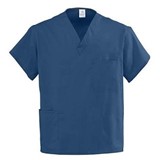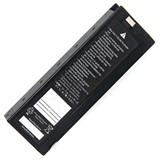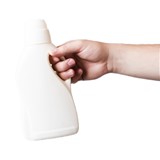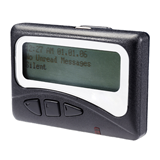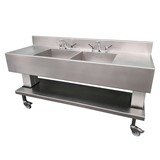Occasionally, medical professionals including doctors, nurses, anaesthetists and paramedics dip into the drugs readily available to them to self-medicate or feed an addiction.
The thorny issue was thrown into the spotlight last week after it emerged vials of the powerful painkiller fentanyl belonging to the Victorian ambulance service had been emptied and refilled with water.
Two paramedics have been stood down while an investigation is carried out.
Ambulance Victoria chief executive Greg Sassella said misappropriation of drugs by ambulance staff was rare.
Substance misuse among paramedics, and other health professionals, is thought to occur at about the same rate as in the general community.
"The use of substances in the community exists and therefore it will exist in probably any workforce of any description," Sassella said.
"People think it doesn't exist in health workforces, but that's not true.
"Health forces are reflective of communities.
"They have all the normal issues with financial challenges, family breakups, stresses and work."
The key difference is that some medical professionals have ready access to these powerful drugs.
Ambulance Victoria has carried restricted drugs including painkillers and anaesthetic agents since the 1970s.
Sassella said it was not surprising that drugs were pilfered on occasion.
Paramedics had been known to take drugs discarded after use on patients, rifle through the sharps bin for needles containing leftover substances, or remove lids from glass ampoules and glue them back on to cover theft, he said.
But paramedics are not the only vulnerable medical practitioners.
Substance misuse by anaesthetists is a well-recognised issue in the industry and is now addressed as part of their training.
The drugs anaesthetists are exposed to in their line of work are particularly powerful, designed to render people unconscious and pain-free while they undergo operations.
Addiction specialist Bridin Murnion from the University of Sydney said substance misuse among anaesthetists was particularly concerning because of their high drug mortality rates, thought to be about 30 per cent of those misusing.
"It's not clear whether those deaths are people choosing to suicide because of the response to being identified as impaired in the workplace or whether they are accidental overdose deaths," Murnion said.
"But it's nonetheless very clear that there is a very, very high rate of mortality.
"It reflects the potency of the agents they are misusing."
She said genetics and the environment both played a role in addiction problems, with healthcare workers operating in highly stressful environments, often with varying degrees of support.
"Genetics, the individual and the environment all interact to create the problem," Dr Murnion said.
Australian and New Zealand College of Anaesthetists (ANZCA) president Lindy Roberts said drug misuse among anaesthetists was "uncommon, but it does happen".
"Although it's an uncommon problem, many anaesthetists will be aware of someone who has died as a result of it," she said.
The college is well aware of the issue and in 1995 established the Welfare of Anaesthetists Special Interest Group, which addresses a range of issues affecting anaesthetists' and pain medicine specialists' health, including substance abuse.
Awareness of the peril of drugs is part of the curriculum for trainee anaesthetists, Dr Roberts said.
The college encourages anaesthetists to have a personal GP and to seek help, when needed, from Doctors' Health Advisory Services available in each state.
Dr Margaret Kay works for that service in Queensland and has also conducted research into doctors' health.
The senior lecturer at the University of Queensland said doctors found to be abusing substances often had other physical health problems such as significant back pain that may have driven their misuse.
Often, they have been prescribed narcotics by a colleague before deciding they need "just one more script" and self-medicate inappropriately, she said.
"It's almost because of our intense understanding of drugs that we feel, `it's not going to get us'," she said.
"It's a really slippery slope."
Dealing with medical professionals who transgress in this way is a delicate issue.
The Doctors Health Advisory Service can refer practitioners to drug addiction specialists within 24 hours, Dr Kay said.
But admitting to a substance use problem is confronting for doctors whose jobs are inevitably on the line, she said.
In the event a professional is allowed to return to work, the next step is to find the worker a supportive environment where others are willing to work with them, Dr Kay said.
Australian Medical Association president Dr Steve Hambleton echoes the sentiments of ANZCA and Ambulance Victoria when he says the medical industry's priority is to protect patients and support practitioners who stumble into trouble.
Laws mandate the reporting of any alcohol or substance intoxication in medical workplaces.
State medical boards can exclude individuals who do transgress from the workplace and monitor practitioners who return, he said.
Ambulance Victoria's Greg Sassella points out that the service has a crisis unit to refer paramedics to for help, while chaplains and psychologists are also on hand to lend support.
The crisis unit also conducts research to track the wellbeing of paramedics.
A paramedic found to have misappropriated drugs is offered support regardless of whether they are terminated or remain an employee, he said.
Paramedics are trusted with patient's lives, treatment and privacy, and they are also entrusted with pharmacology, Sassella said.
"The issue of us maintaining public trust in paramedics is very important.
"The paramedics fulfil that level of trust almost perfectly.
"It's just rare that this happens."
- Suppliers
- New to MedicalSearch? Book a Demo
- Advertise with us
- Login
- Email Marketing
- Buyers
- Get Quotes
- Articles & Ideas
- Login
- Subscribe to newsletter
- My Details
- Get Quotes
- Accident & Emergency Care
- Aged Care & Disability
- Anaesthesia & Respiratory Care
- Beauty & Wellness
- Cardiology & Cardiac Surgery
- Dental Care & Oral Surgery
- Diagnostic Instruments & Medical Imaging
- Disinfection & Sterilisation
- ENT & Audiology
- Gynaecology & Obstetrics
- Homecare & Consumer Medical
- Hospital Equipment & Supplies
- Intensive Care Unit
- Laboratory & Pathology
- Medical Apparel
- Medical Devices & Products
- Medical Fridges & Freezers
- Medical Storage & Filing
- Medical Waste Management
- Optometry & Ophthalmology
- Orthopaedics & Podiatry
- Paediatrics & Neonatology
- Patient Monitoring & Management
- Physiotherapy & Rehabilitation
- PPE & Infection Control
- Single Use Medical Consumables
- Surgical Tools & Supplies
- Treatment Beds, Tables & Couches
- Veterinary Equipment
- Wheelchairs & Mobility Aids
- Get Quotes
- Accident & Emergency Care
- Aged Care & Disability
- Anaesthesia & Respiratory Care
- Beauty & Wellness
- Cardiology & Cardiac Surgery
- Dental Care & Oral Surgery
- Diagnostic Instruments & Medical Imaging
- Disinfection & Sterilisation
- ENT & Audiology
- Gynaecology & Obstetrics
- Homecare & Consumer Medical
- Hospital Equipment & Supplies
- Intensive Care Unit
- Laboratory & Pathology
- Medical Apparel
- Medical Devices & Products
- Medical Fridges & Freezers
- Medical Storage & Filing
- Medical Waste Management
- Optometry & Ophthalmology
- Orthopaedics & Podiatry
- Paediatrics & Neonatology
- Patient Monitoring & Management
- Physiotherapy & Rehabilitation
- PPE & Infection Control
- Single Use Medical Consumables
- Surgical Tools & Supplies
- Treatment Beds, Tables & Couches
- Veterinary Equipment
- Wheelchairs & Mobility Aids
Trusted by 500,000+ Australian medical buyers
Buyers
- Discover products & solutions
- Login
- Subscribe To Newsletter
- Browse All Products
- Read Articles
Suppliers
Advertise
- Promote your products & solutions
- New to MedicalSearch? Book a Demo
- Login / Forgot Password
- Advertise Your Products
- Success Stories
- Email Marketing
- Suppliers
- Advertise with us
- Login
- Email Marketing
- Buyers
- Get Quotes
- Articles & Ideas
- Login
- Subscribe to newsletter
- My Details
Get Quotes
- Accident & Emergency Care
- Aged Care & Disability
- Anaesthesia & Respiratory Care
- Beauty & Wellness
- Cardiology & Cardiac Surgery
- Dental Care & Oral Surgery
- Diagnostic Instruments & Medical Imaging
- Disinfection & Sterilisation
- ENT & Audiology
- Gynaecology & Obstetrics
- Homecare & Consumer Medical
- Hospital Equipment & Supplies
- Intensive Care Unit
- Laboratory & Pathology
- Medical Apparel
- Medical Devices & Products
- Medical Fridges & Freezers
- Medical Storage & Filing
- Medical Waste Management
- Optometry & Ophthalmology
- Orthopaedics & Podiatry
- Paediatrics & Neonatology
- Patient Monitoring & Management
- Physiotherapy & Rehabilitation
- PPE & Infection Control
- Single Use Medical Consumables
- Surgical Tools & Supplies
- Treatment Beds, Tables & Couches
- Veterinary Equipment
- Wheelchairs & Mobility Aids
Get Quotes
- Accident & Emergency Care
- Aged Care & Disability
- Anaesthesia & Respiratory Care
- Beauty & Wellness
- Cardiology & Cardiac Surgery
- Dental Care & Oral Surgery
- Diagnostic Instruments & Medical Imaging
- Disinfection & Sterilisation
- ENT & Audiology
- Gynaecology & Obstetrics
- Homecare & Consumer Medical
- Hospital Equipment & Supplies
- Intensive Care Unit
- Laboratory & Pathology
- Medical Apparel
- Medical Devices & Products
- Medical Fridges & Freezers
- Medical Storage & Filing
- Medical Waste Management
- Optometry & Ophthalmology
- Orthopaedics & Podiatry
- Paediatrics & Neonatology
- Patient Monitoring & Management
- Physiotherapy & Rehabilitation
- PPE & Infection Control
- Single Use Medical Consumables
- Surgical Tools & Supplies
- Treatment Beds, Tables & Couches
- Veterinary Equipment
- Wheelchairs & Mobility Aids
Trusted by 500,000+ Australian medical buyers

